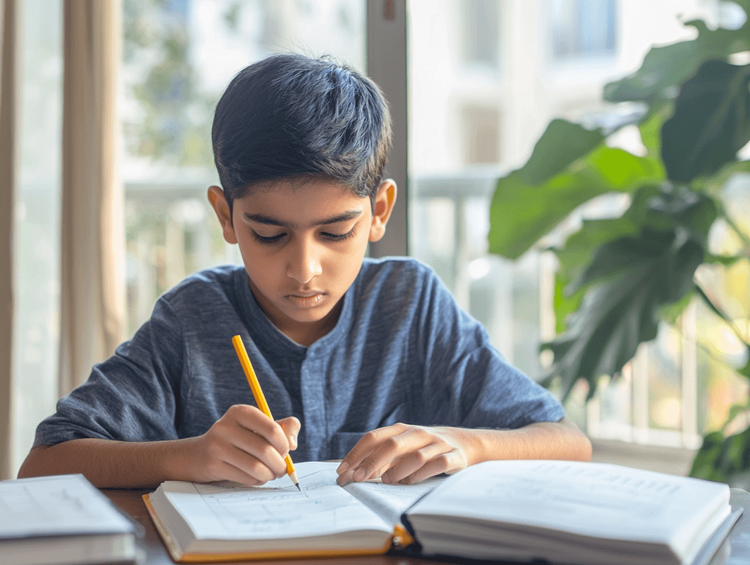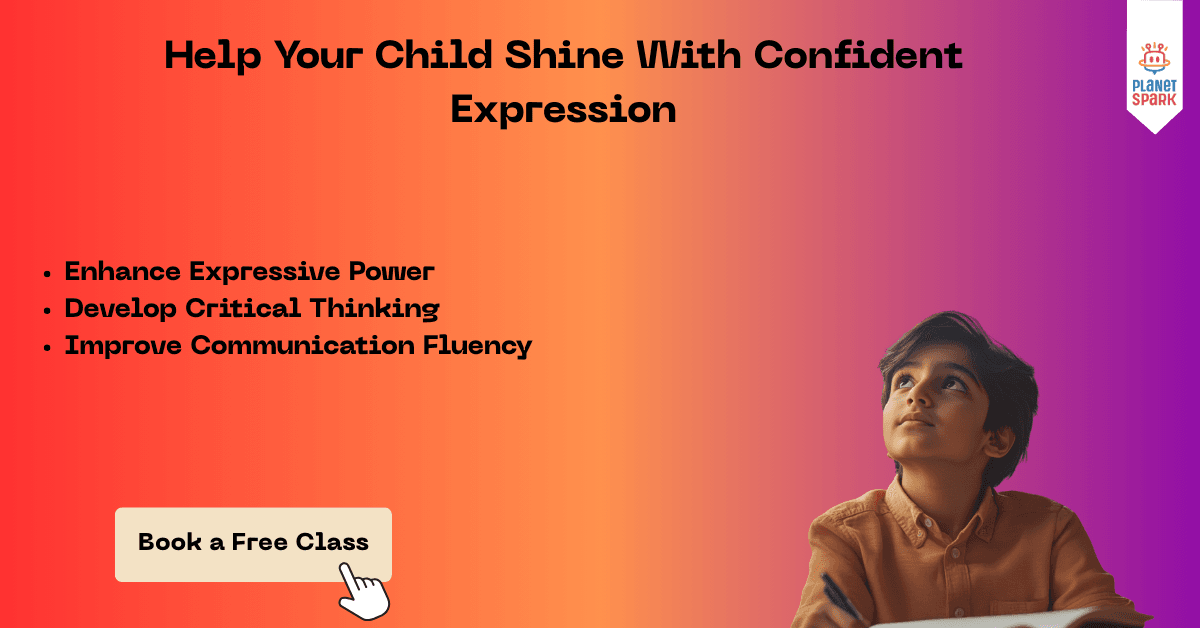How to Avoid Procrastination, Tips for Students & Work
Last Updated At: 13 Sep 2025
8 min read

Table of Contents
- What is Procrastination
- Why Do We Procrastinate? Understanding the Root Causes
- Why Beating Procrastination Matters
- How to Avoid Procrastination: 8 Proven Steps
- How Procrastination Affects Students and Professionals
- Steps to Avoid Procrastination Quickly
- Science-Backed Strategies to Beat Procrastination
- Daily Habits That Prevent Procrastination
- PlanetSpark’s Creative Writing Courses: Beating Procrastinat
- Wrapping Up
Procrastination is a habit nearly everyone struggles with at some point in life. You sit down to complete an important task, whether it’s studying for an exam, writing a report, or finishing a project, but distractions suddenly feel more appealing. Cleaning your desk, scrolling through Instagram, or watching “just one more episode” seems urgent in the moment, while the real work gets pushed aside. Over time, this cycle silently drains productivity, increases stress, and prevents both students and professionals from reaching their full potential.
At PlanetSpark, we believe the key to overcoming procrastination lies in building discipline and focus early. That is why our Creative Writing Courses go beyond writing skills, offering personalised mentorship, AI-powered feedback, and gamified learning experiences that help students stay consistent and accountable. By strengthening habits like time management and self-expression, children not only grow as confident communicators but also develop the resilience to beat procrastination for life.
What is Procrastination
Procrastination is the act of delaying important work and replacing it with less urgent, often easier, activities. Unlike laziness, which is a lack of desire to act, procrastination often involves being busy but not productive. For example, a student may color-code notes instead of solving practice problems. A professional may spend hours planning instead of executing.
Procrastination is usually caused by:
Fear of failure or judgment
Perfectionism, waiting for the “perfect” time
Overwhelm from large or complex tasks
Lack of motivation or interest
Poor time management and organization
Recognizing the underlying reason for your procrastination is the first step toward overcoming it.

Why Do We Procrastinate? Understanding the Root Causes
Many people wonder: “Why do I procrastinate so much?” The truth is, procrastination isn’t about laziness. It’s often linked to deeper psychological and practical reasons. Recognizing these root causes is the first step to breaking the cycle.
Fear of Failure
Sometimes people delay tasks because they fear they won’t meet expectations. This fear of failure creates anxiety, leading to procrastination.
Lack of Motivation
Without a clear reason or “why,” starting a task can feel meaningless. Both students and professionals procrastinate when they don’t connect with the purpose of their work.
Perfectionism
Waiting for the “perfect” time or striving for flawless results can delay progress. In reality, small, consistent steps matter more than perfection.
Overwhelming Workload
When the to-do list feels endless, people feel stuck. This sense of overwhelm causes many to avoid starting at all.
Why Beating Procrastination Matters
Over time, procrastination does not just affect productivity; it impacts mental health, confidence, and career or academic success.
Increased stress as deadlines creep closer, causing panic
Lower quality work due to rushed tasks lacking depth
Missed opportunities such as promotions, grades, or skill growth
Weakened self-discipline, making it harder to build strong habits
Emotional toll, including guilt, frustration, and low self-esteem
Learning how to stop procrastinating is not just about finishing tasks;, it is about improving your long-term mindset and productivity.
How to Avoid Procrastination: 8 Proven Steps
1. Eliminate Distractions
Distractions are the number one reason people delay work. Constant phone pings, social media, or even background chatter make it harder to concentrate.
Silence your phone or keep it in another room
Block distracting apps or websites
Work in a quiet, organized space
Use productivity music or noise-canceling headphones
A focused environment builds the mental discipline to stay on track.
2. Prioritize Your Work
Not all tasks are created equal. The trick to productivity lies in knowing which tasks deserve your energy first.
Use the Eisenhower Matrix to classify tasks
Start with “urgent and important” items
Avoid wasting energy on small, low-value tasks early in the day
When your priorities are clear, procrastination loses its grip.
3. Set Clear Goals
Without specific goals, it is easy to drift into procrastination.
Break big projects into smaller milestones.
Write down daily or weekly objectives.
Use SMART goals: Specific, Measurable, Achievable, Relevant, Time-bound.
Small wins build momentum, making it easier to keep going.
4. Take Regular Breaks
Working nonstop can lead to burnout, making procrastination more tempting.
Try the Pomodoro Technique: 25 minutes of work, 5 minutes of rest
Stretch, hydrate, or step outside briefly
Avoid using breaks to scroll social media
Balanced breaks refresh your focus and reduce fatigue.
5. Stay Accountable
Accountability can make all the difference. When others know your goals, you are less likely to delay.
Share progress with a friend or mentor
Join accountability groups or coworking spaces
Use apps like Habitica, Trello, or Todoist
External accountability turns procrastination into responsibility.
6. Become Organized
Disorganization fuels procrastination. If your desk, calendar, or digital files are a mess, you will waste time searching instead of working.
Use planners, digital tools, or simple to-do lists
Organize tasks by category and urgency
Prepare the night before to avoid decision fatigue in the morning
Clarity in your environment equals clarity in your work.
7. Reward Yourself
Rewards motivate to complete tasks.
Treat yourself to something enjoyable after completing milestones
Use rewards that do not derail progress, like a walk, snack, or short video
Celebrate small wins to build confidence
Rewards make productivity enjoyable instead of stressful.
8. Set Realistic Deadlines
Deadlines create urgency, but unrealistic ones can backfire.
Break large tasks into smaller ones with mini-deadlines
Use tools like Google Calendar to stay on track
Hold yourself accountable to self-set deadlines
Practical deadlines give structure and prevent last-minute rushes.

How Procrastination Affects Students and Professionals
The effects of procrastination go beyond incomplete work. They can impact learning, career growth, and mental well-being.
Impact on Students
Missed assignment deadlines and exam preparation.
Lower academic performance and self-confidence.
Higher stress and anxiety levels.
Impact on Working Professionals
Reduced productivity and efficiency.
Missed opportunities for career advancement.
Strained workplace relationships and teamwork.
Steps to Avoid Procrastination Quickly
Here are some proven ways to stop procrastination in daily life:
Eliminate Distractions
Shut off your phone, block distracting apps, or move to a quiet space where you can focus.
Prioritise Your Work
Make a list of what’s most important and start with high-priority tasks.
Set Goals
Break tasks into short-term and long-term goals to make progress manageable.
Take Breaks
Work in intervals. A short break between tasks refreshes your mind.
Stay Accountable
Share your goals with a friend, mentor, or trainer who can help keep you responsible.
Get Organised
Use planners, apps, or to-do lists to structure your day effectively.
Reward Yourself
Celebrate small wins to keep yourself motivated.
Set Deadlines
Create personal deadlines to measure productivity and stay on track.
Science-Backed Strategies to Beat Procrastination
Psychologists and productivity experts recommend structured techniques to break free from procrastination.
The Two-Minute Rule
If a task takes less than two minutes, do it immediately. This helps in building momentum.
Time Blocking Technique
Plan your day into focused blocks of 25–50 minutes, followed by short breaks. This prevents fatigue and boosts concentration.
Reward and Accountability Systems
Promise yourself rewards or ask someone to hold you accountable. Positive reinforcement increases task completion.
Daily Habits That Prevent Procrastination
Building discipline through small daily habits ensures procrastination does not return.
Start with Small Wins
Tackle easy tasks first to gain momentum and confidence.
Maintain a Healthy Lifestyle
Eat well, exercise regularly, and get enough sleep to improve focus.
Reflect and Adjust Weekly
Review your progress weekly and adapt strategies as needed.
PlanetSpark’s Creative Writing Courses: Beating Procrastination Through Learning
Procrastination does not only affect adults; it starts early in life. Children often delay homework, reading, or creative writing tasks. At PlanetSpark, our Creative Writing Courses combine structure, creativity, and technology to help children overcome procrastination and develop long-term focus.
Key Features of PlanetSpark
1:1 Personal Trainers offering personalized attention from certified communication experts
Custom Learning Roadmaps are updated regularly based on progress
SparkX AI Analysis with video-based feedback on clarity, posture, and delivery
AI-Led Practice Sessions for independent practice with instant feedback
Spark Diary, a digital journaling habit-builder
Gamified Learning with fun quizzes such as Grammar Guru and Word Wisdom
Regular PTMs for transparent parent-trainer communication
Progress Reports with detailed evaluations of grammar, creativity, and confidence
Learning Clubs such as the Debate Club, Writers Guild, and Poetry Circles
Sparkline, a safe content-sharing platform for kids
Contests and Showcases for real-time recognition
SparkBee and SparkShop for daily practice quizzes and engaging eBooks
These features ensure that kids not only become confident writers but also build consistency, accountability, and habits that eliminate procrastination.
Wrapping Up
Procrastination is not a permanent flaw; it’s a habit that can be unlearned. By eliminating distractions, setting priorities, breaking tasks into manageable goals, and staying accountable, anyone can build focus and discipline.
For students, especially, procrastination can become a barrier to learning. With the right support system, children can develop habits that ensure lifelong productivity and confidence. That’s where PlanetSpark’s Creative Writing Courses step in with 1:1 mentorship, AI-enabled tools, and gamified learning to make discipline fun and effective.
Take the first step towards your child’s growth. Book a FREE demo class with PlanetSpark today!
Frequently Asked Questions
Procrastination is delaying important tasks in favor of less urgent, often easier ones. Unlike laziness, procrastinators stay busy but not effectively productive.
Workplace procrastination often stems from boring tasks, fear of failure, or lack of clarity in priorities. Breaking tasks down and setting deadlines helps.
Students should follow study schedules, tackle tough subjects first, use focus apps, and avoid cramming by spreading learning across smaller chunks.
Chronic procrastination leads to stress, low confidence, poor performance, missed opportunities, and sometimes even anxiety or depression.
Parents can encourage routines, set deadlines, reward achievements, and enroll kids in structured programs like PlanetSpark to build consistent habits.
Yes, rewards reinforce positive behavior, making it easier to stick to goals and build long-term productivity habits.
While occasional procrastination is natural, building habits of discipline, organization, and accountability can significantly minimize its impact.
Personalized Communication Report
Record a video to get a AI generated personalized communication report for your child
Select Learner's Class

Hi There, want to try these
tips for your child with
LIVE with our expert coach?
Let's check your child's
English fluency
